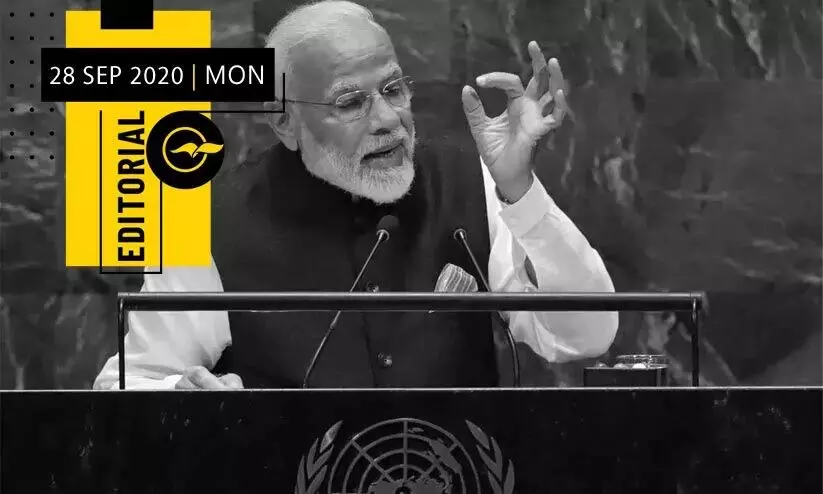
UN reforms: the core issue is not membership, but justice
text_fieldsThe deficiencies and limitations of the UN are so patent as not to need elaboration. Ever since the time just before 9 September 2001, the UN has been a mere spectator in the tussle for power and occupation by big powers. The lies circulated by them only to establish a UN stamp of approval for the 'wars on terror' waged by America and Britain, particularly targeting Muslim countries, all stand disproved now. The 'allied' forces intruded into Iraq and Afghanistan by misleading the UN General Assembly and UNSC with forged documents and false statements. And the UN, even after realising this, is powerless to do anything, not even to ask questions. The world body should have been able to make itself a creative entity by making its anti-terror campaigns subject to common justice and law. Instead, what it did was to make itself irrelevant by remaining a mere onlooker of unilateral imperialistic onslaughts. As a result, not only were terrorist outfits like the IS came born, but about seven countries were shattered and the culture and civilizations dating back to pre-historic times faced extinction. The latest report by Brown University of the US says that 3.75 crore people became homeless. About eight lakh people were killed in wars. Sadly, the United Nations by its inaction was party to these wars. A collection of UN resolutions against the Israeli iniquities against Palestine alone would make a library. The UN which was destined to merely watch its own resolutions being consistently violated, in spite of knowing on which side justice stood, now craves for a rebirth. However, for that to happen there is a need for structural reforms advocated by many including Indian prime minister. But the core of the issue is what kind of reforms.
It appears that even in the matter of structural reforms, Modi has taken a narrow approach. His sole emphasis seems to have been on India's claim to a permanent membership in the UNSC. India has now been elected to non-permanent membership, which will take effect on 1 January. The discrimination that should go, is the dispensation in which a set of countries get elected in turns and at the same time another five countries rule supreme on a permanent basis. What is needed more than becoming one of the elite countries as a permanent member, is a negation of such special privileges in order to actualise the principle of 'vasudhaiva kutumbakam'. In earlier years, even when trying for permanent membership, the call by India was to do way with the hegemony of big powers. The key factor that has played a big role in making the UN itself irrelevant, is the dominance of big powers and their veto power. It is on the strength of being victors in the Second World War that this superpower status was conferred on the US, UK, France and Russia - which was later accorded to China (then Taiwan) too. But it is only because of the existence of the veto system and the behaviour of some of the veto countries aking to rogue states, that the UN had to remain hamstrung at the time of disasters from the Israeli issue to the anti-terror terrorism. The issue is about discrimination and unfairness. It is the conflicts bred by this mechanism that led to the birth to extremists. In fact the hyper-nationalist leaderships of most countries are also the product of this system, riddled with injustice. It needs to be recognised that the UN's helplessness in tackling problems ranging from refugee crisis to Covid-climate crisis, and India's approach of incorporating even citizenship denial and human rights violations in its law-making process are both forms of the same injustice.






















